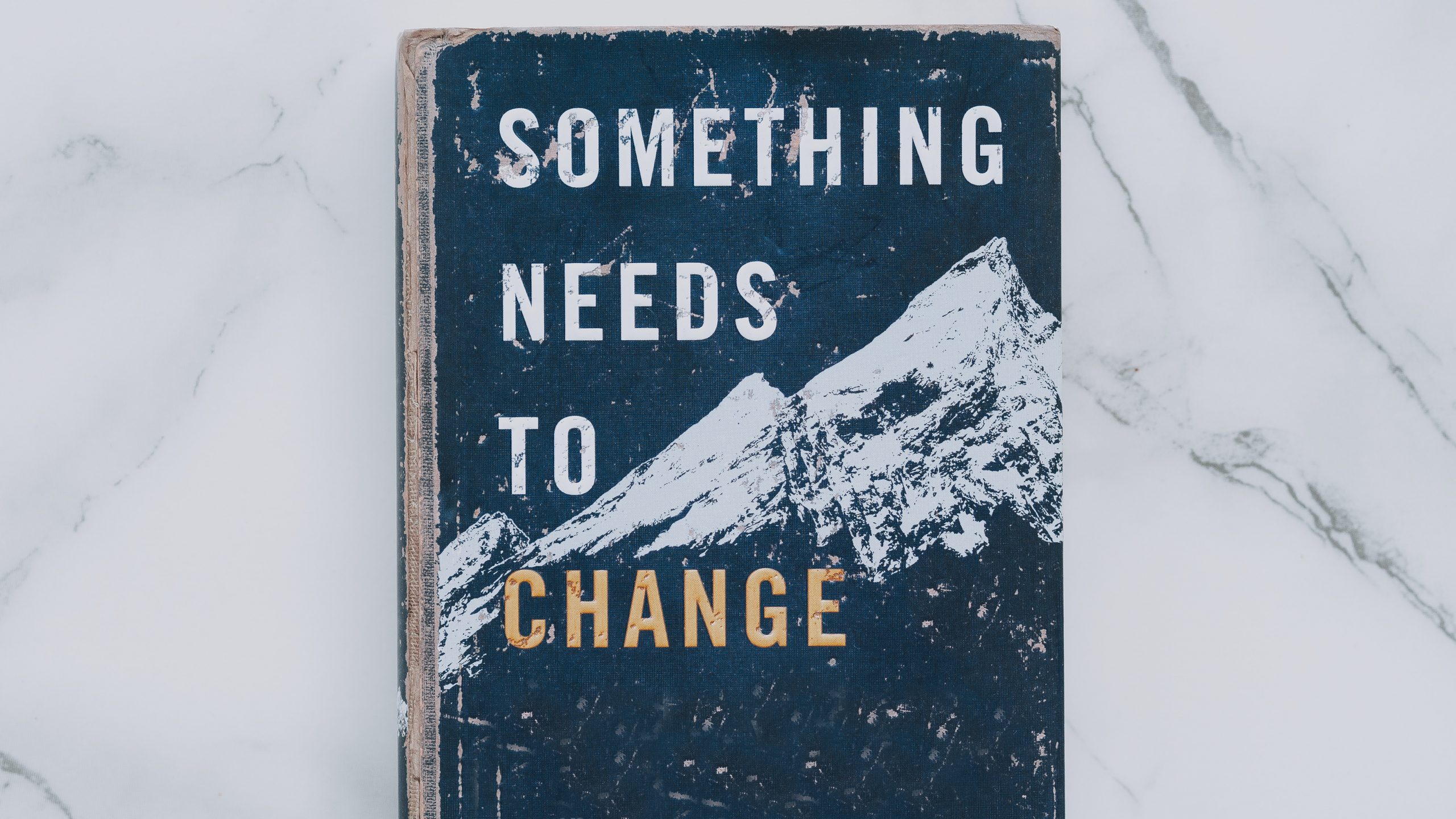Passion and eagerness for change – that was what underpinned the two and a half hours long Virtual Africa Union Youth Consultation Series (AUYCS) on COVID-19, African & Global Solidarity organised by the African Union Youth Envoy. Joined by an amazing lineup of speakers, the meeting sought to spark discussions between speakers and youth on how Africa, could and will move forward in the post-pandemic world. After months of calamities and stagnation in the pandemic, it was refreshing to see how vibrance and enthusiasm fuelled the meeting.
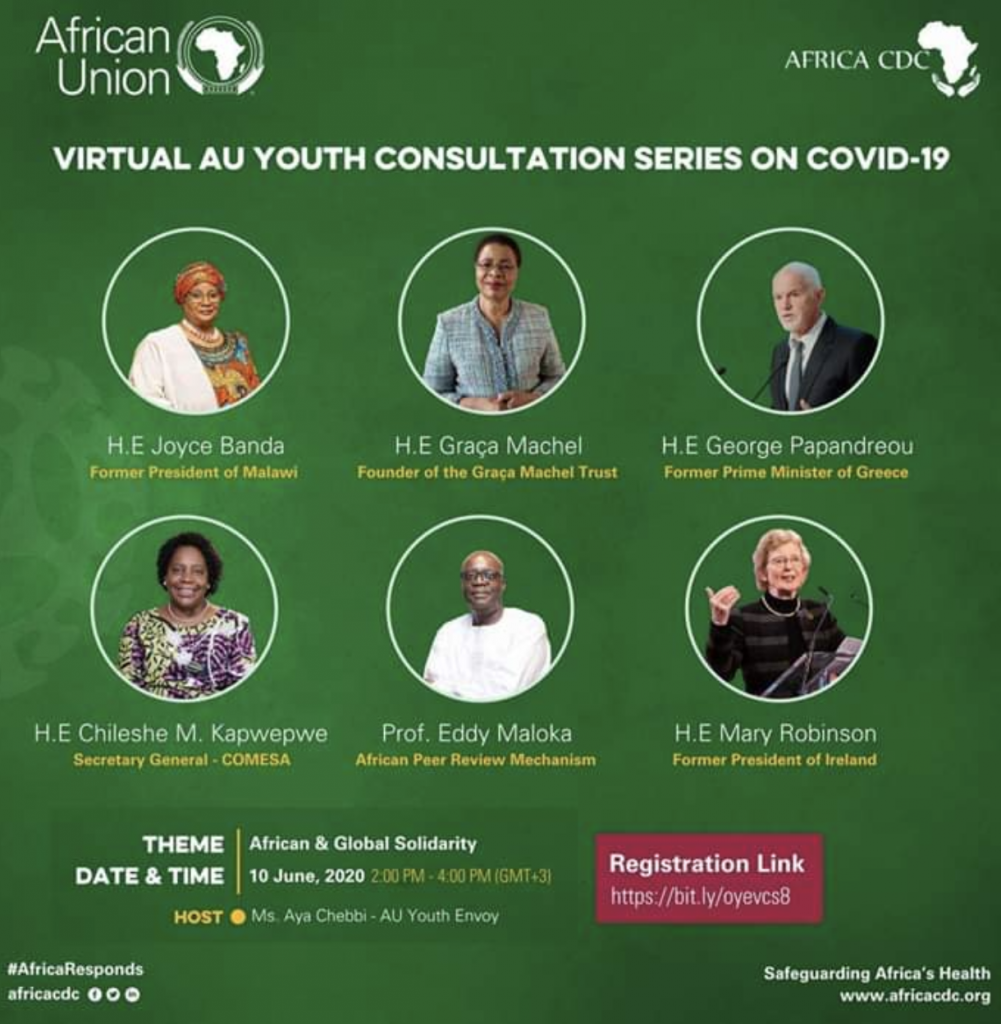
Out with the old, in with the new. COVID-19, although having devastated Africa, has the potential to reform its status quo and institutions for the renewal and betterment of the continent. Six months into the COVID-19 pandemic, what are the implications of the hurdles faced in the battle with regard to the bigger picture in Africa? How might Africa move forward from the old paradigm to another to forge equal partnerships with the world and promote youth participation?
Old: The continent engined externally
COVID-19 was downplayed from the very beginning, but when the pandemic arrived in Europe in March, we finally came to realise the magnitude of this unforeseen circumstance and the potential destruction it could have on humanity. As COVID-19 mercilessly plagued and engulfed Europe, with national health systems on the verge of collapse, one could only imagine the perils the much less-developed Africa would be faced with, should an outbreak occur.
COVID-19, like climate change, has disproportionally affected African countries.
Her Excellency Mary Robinson, Former President of Ireland
This statement resonates more than ever, with the far-reaching consequences of COVID-19 in Africa emerging, one by one.
Six months into this pandemic, “nearly 300,000 COVID-19 cases” have been reported in Africa, with a plethora of non-health-related consequences. Africa has found its economy in “its first recession for 25 years”, with oil prices plummeting “from USD 61.5 in December 2019 to USD 23.2 in March 2020”. Not to mention how COVID-19 further hampers the well-being of Africans: “World Bank’s projections suggest that Sub-Saharan Africa will be the region hit hardest in the world in terms of increased extreme poverty”, while the OECD “estimates” that the pandemic may “increase the threat of food insecurity” in already-vulnerable African countries, such as Liberia.
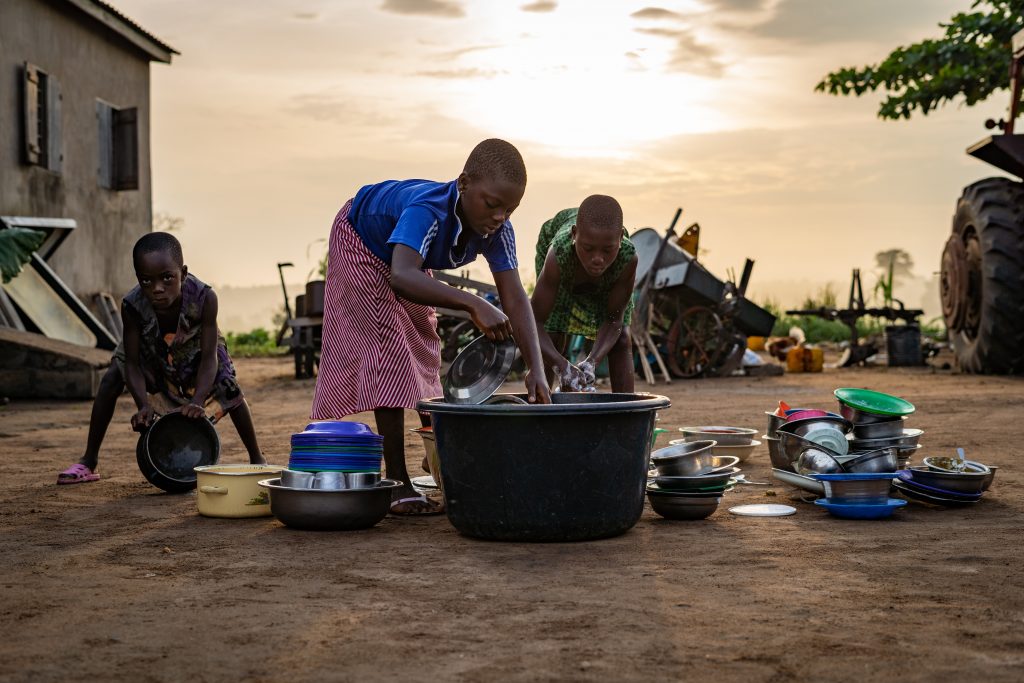
Combating COVID-19 is almost like a war, and it is humanity’s strategy to pool all resources at their disposal to protect and defend Africa from the invasion of the virus, or at least it should be. International organisations, both the World Health Organisation and the World Bank attempt to “coordinate efforts” to support Africa – ultimately to eradicate the virus. The reality, however, proves that the international community is far from solidarity, but in the midst of protectionism. As the Wall Street Journal accounts, while “the Group of 20 major economies pledged to work together to facilitate international trade in medical supplies”, “more than 70 countries”, including the United States, have “restricted exports of medical items”. As Africa lacks self-sufficiency in pharmaceutical products, with “90% of its medical supplies imported“, one could easily imagine how the recent bans must have aggravated the pandemic in Africa. At the same time, “pledges of financial support and debt relief have fallen short of the continent’s needs during this COVID-19 pandemic”.
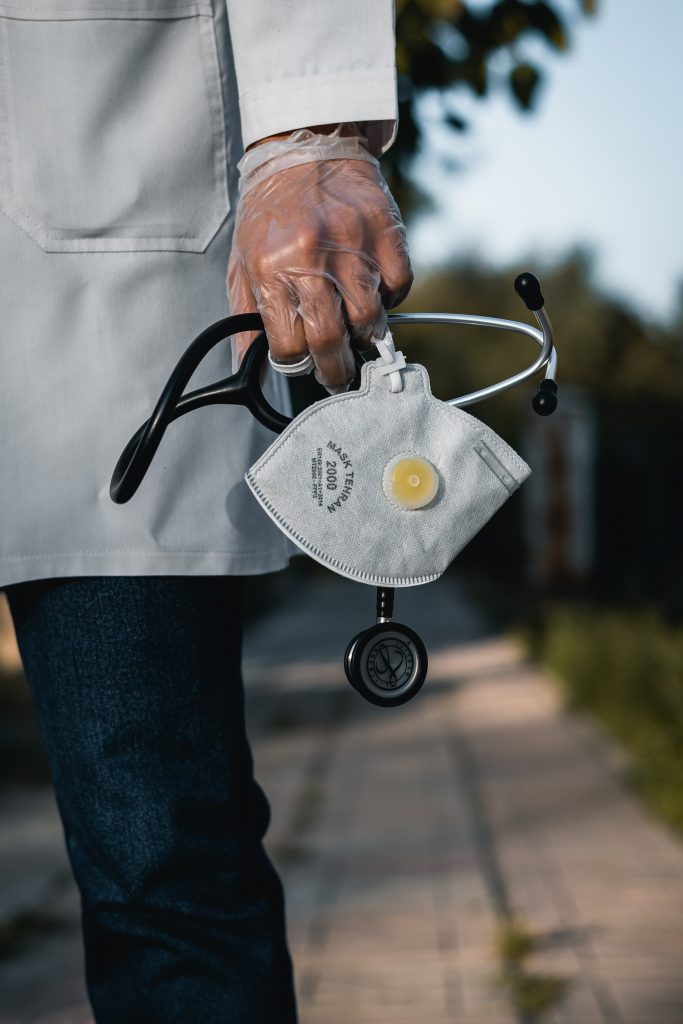
The irony here is best summarised by the statements made by the “Presidents of Kenya, Ivory Coast, Sierra Leone, Senegal and Niger“: “wealthy countries failed Africa during the pandemic“.
New: An inclusive and diverse international community
Africa needs aid, and the trend will continue. The question here is: how can the European community go beyond the donor-recipient relationship to forge an equal partnership?
His Excellency George Papandreou, Former Prime Minister of Greece
Blinded by the donor-recipient doctrine, we have failed to appreciate and learn from Africa’s handling of the COVID-19 pandemic. As of 21st June, 2020, 297112 cases have been reported in Africa. Despite the fact that Africa amounts to “17% of the world’s entire population”, “Africa accounts for barely one percent of number of infections”. Coupled with the fact that South Africa is one of the very few countries that was vigilant and cautious enough to have launched a comprehensive COVID-19 testing scheme for its citizens by end of March, it is now clear and undeniable that Africa, despite widely perceived as a “failing continent”, has done remarkably well in handling the COVID-19 pandemic. Africa’s relatively successful endeavour in curbing the pandemic suggests how other countries, in collaboration with African states, could actively open conversations, engage and exchange insights -ultimately learn from each other.
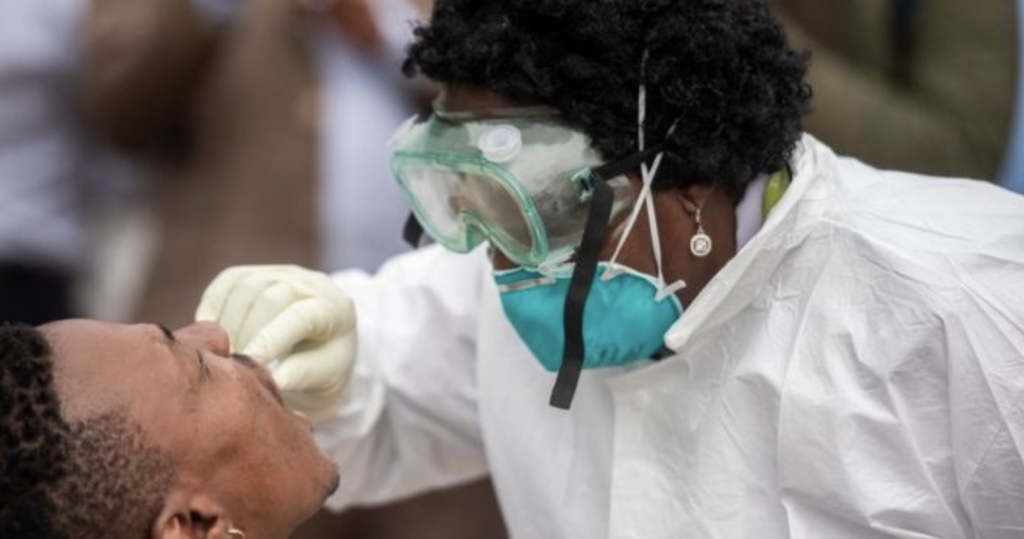
As Africa has entered boldly and thrived in the digital paradigm, its capacity in innovation must not be underestimated. Senegal, in partnership with “U.K.-based laboratory Mologic” is on its way to developing a “10 minutes rapid COVID-19 diagnostic test that works without electricity and doesn’t require laboratory analysis”. By forging equal partnerships with Africa, the international community would then be able to harness Africa’s ever-increasing capacity in technology – ultimately opening doors to creative and innovative solutions for pressing problems.
To dwell in the donor-recipient relationship is to disregard the significance of Africa in the forefront of the pandemic, and most importantly, the contributions Africa has to offer the world.
The recent “Black Lives Matter” campaign which addresses systemic injustice faced by African-Americans in the United States echoes to the “lack of representation of the African continent in the permanent category of the Security Council“.
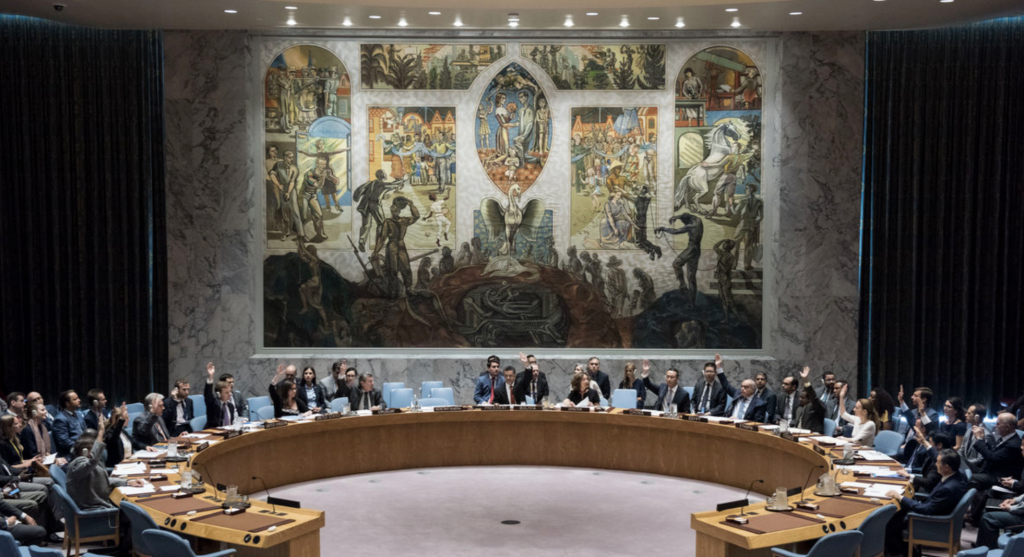
Inclusion of African continent in the Security Council is long overdue – without African voices integrated into decision-making processes, without African concerns projected into the global agenda, and most importantly, without the inputs and contributions of Africa, the international community lacks depth and breadth, only to be characterised by “power imbalance” and structural hierarchy.
Old: Mistrust of governments
Africa was planning for a perfect future, not a disaster like COVID-19 .
Professor Eddy Maloka, African Peer Review Mechanism
Decades-long of corruption among African officers has culminated in distrust. Surveys revealed that South Africa is one of the worst-performing governments in Africa, scoring a meagre 32 percent in terms of public trust. While citizens around Africa, out of distrust, defied lockdown regulations, the somewhat draconian measures in place, such as the use of rubber bullets against violators in South Africa, have further brewed outrage over governments’ apathy to its citizens and “excessive use of force“.
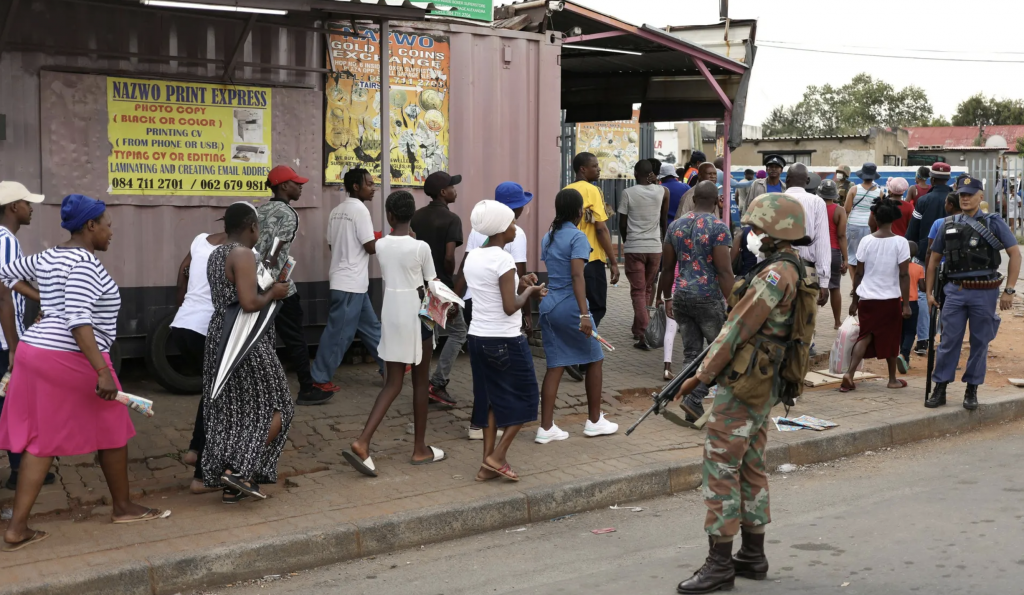
New: Youth empowerment and participation on local and regional levels
Going back to the old normal is not the solution. COVID-19 is the opportunity to make changes: more resilient and stronger institutions, transparency, fighting corruption, better governance, participation for the youth – this is the democratic challenge.
His Excellency George Papandreou, Former Prime Minister of Greece
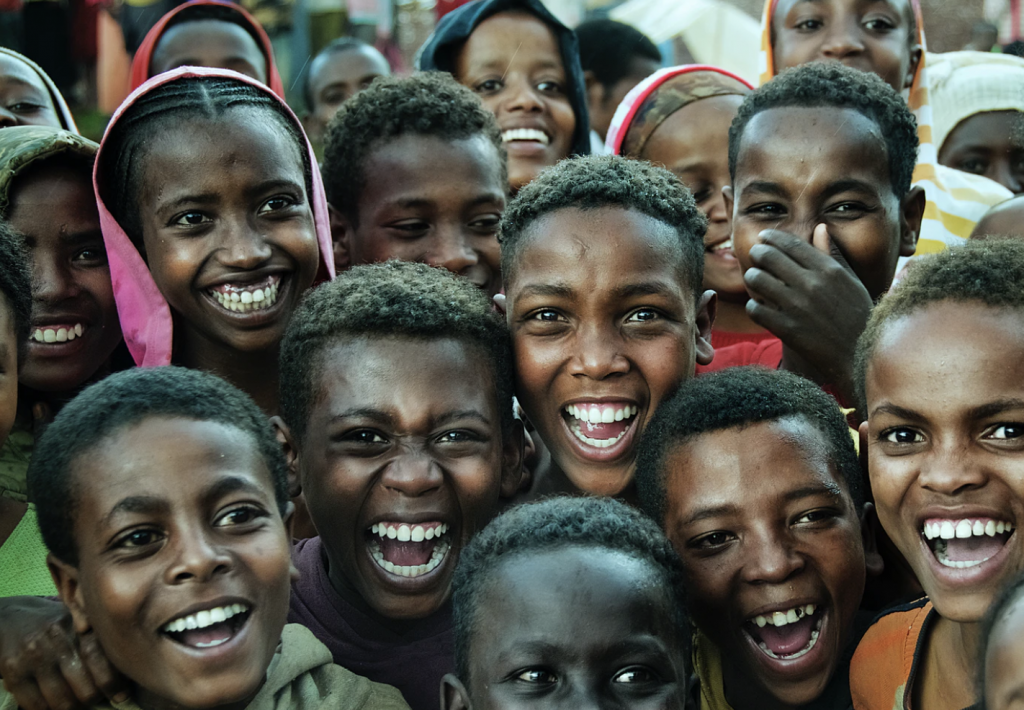
It is through inclusion of different stakeholders in local decision-making processes that government can strengthen its responsiveness to citizens’ needs and ultimately bolster government legitimacy. “Almost 60% of Africa’s population in 2019 is under the age of 25” – such demography suggests the importance of engaging youth in order to achieve good governance in Africa. In times of COVID-19, governments in Africa are increasingly aware of the tremendous contributions and achievements made by young change-makers in responding to the pandemic. The Nigerian government for one, has hosted a virtual “Live Chat” for its youth to open dialogues, gauge youth sentiments and note youth-specific needs in light of the COVID-19 pandemic in Nigeria. The African Union has also “launched the African Youth Charter Hustlers initiative” to empower young people to “transform government institutions to deliver for citizens, basic services and a life with dignity“. Should Africa continue promoting youth participation and catering to needs, trust can then gradually be rebuilt.
A renewed continent
Change could occur, if only we harnessed the opportunities presented to us. COVID-19 might be noxious, but it could be a turning point for good – if only we worked towards it collectively. This meeting, although on a virtual format, has brought up lively, candid and intense discussions within youth participants from Africa. African youth, for starters, are acutely aware of the happenings and challenges surrounding the African continent, and are more than ready to voice out, to effect impact, and to fight for justice. As Her Excellency Mary Robinson, the Former President of Ireland said, “Nobody can speak for the youth than by the youth“. Institutions on domestic, regional and international levels must embrace Africa’s vibrant youth in order to truly make any changes. No more “what ifs”, but “what can”.
Header Image Credit: https://bluehouseskis.com
References
Adebayo, B. (2020). Senegal partners with UK lab to develop a hand-held coronavirus test kit. CNN. Available at https://edition.cnn.com/2020/03/12/africa/senegal-uk-coronavirus-rapid-test-kit/index.html. Accessed on 21 June, 2020.
Adegoke, Y. (2020). Africa is set to tip into its first recession for 25 years due to the COVID-19 outbreak. Available at https://qz.com/africa/1835571/africa-set-for-recession-due-to-covid-19-crisis-world-bank/. Accessed on 21 June, 2020.
Anna, C. (2020). Africa dangerously behind global race for virus gear. AP News. Available at https://apnews.com/dac37120ce6ac64355f4286eef15a30e. Accessed on 21 June, 2020.
Burke, J. (2020). South African police fire rubber bullets at shoppers amid lockdown. The Guardian. Available at https://www.theguardian.com/world/2020/mar/28/south-africa-police-rubber-bullets-shoppers-covid-19-lockdown. Accessed on 21 June, 2020.
Douglas, J. (2020). As Countries Bar Medical Exports, Some Suggest Bans May Backfire. Restricting key supplies may prolong the coronavirus’s hold. The Wall Street Journal. Available at https://www.wsj.com/articles/as-countries-bar-medical-exports-some-suggest-bans-may-backfire-11585992600. Accessed on 21 June, 2020.
E. Gyimah-Boadi and Logan, C. (2020). Many Africans distrust their governments. How will that affect their coronavirus response? The Washington Post. Available at https://www.washingtonpost.com/politics/2020/05/01/many-africans-distrust-their-governments-how-will-that-affect-their-coronavirus-response/. Accessed on 21 June, 2020.
Harding, A. (2020). South Africa’s ruthlessly efficient fight against coronavirus. BBC Available at https://www.bbc.com/news/world-africa-52125713. Accessed on 21 June, 2020.
Mahler, D.G., Lakner, C, Aguilar, R.A.C, Wu, H (2020). The impact of COVID-19 (Coronavirus) on global poverty: Why Sub-Saharan Africa might be the region hardest hit. Available at https://blogs.worldbank.org/opendata/impact-covid-19-coronavirus-global-poverty-why-sub-saharan-africa-might-be-region-hardest. Accessed on 21 June, 2020.
McCaffrey, D. (2020). Analysis: Africa’s unexpected COVID-19 figures. Euro News. Available at https://www.euronews.com/2020/05/12/analysis-africa-s-unexpected-covid-19-figures. Accessed on 21 June, 2020.
Mo Ibrahim Foundation (2019). Africa’s first challenge: the youth bulge stuck in ‘waithood’. Available at https://mo.ibrahim.foundation/news/2019/africas-first-challenge-youth-bulge-stuck-waithood. Accessed on 21 June, 2020.
Mo Ibrahim Foundation (2020). COVID-19 in Africa: Youth Perspectives – Aya Chebbi. Available at https://mo.ibrahim.foundation/news/2020/covid-19-africa-youth-perspectives-aya-chebbi. Accessed 21 June, 2020.
OECD (2020). OECD Policy Reponses to Coronavirus (COVID-19): COVID-19 and Africa: Socio-economic implications and policy responses. Available at https://www.oecd.org/coronavirus/policy-responses/covid-19-and-africa-socio-economic-implications-and-policy-responses-96e1b282/. Accessed on 21 June, 2020.
Reuters (2020). Wealthy countries failing Africa during pandemic, presidents say. Reuters. Available at https://www.reuters.com/article/us-health-coronavirus-africa-leaders/wealthy-countries-failing-africa-during-pandemic-presidents-say-idUSKBN22V2GK. Accessed on 21 June, 2020.
Shaban, A.R.A. (2020). Coronavirus in Africa: 297,112 cases, 7,919 deaths; 142,622 recoveries. Africa News. Available at https://www.africanews.com/2020/06/21/coronavirus-in-africa-breakdown-of-infected-virus-free-countries/. Accessed on 21 June, 2020.
Tadesse, A.G. (2020). COVID-19 cases in Africa near 300,000. A.A. Available at https://www.aa.com.tr/en/africa/covid-19-cases-in-africa-near-300-000/1884649. Accessed on 21 June, 2020.
The European Think Tanks Group (2020). Towards a new Africa-Europe partnership after the Corona crisis. Available at https://www.euractiv.com/section/botswana/opinion/towards-a-new-africa-europe-partnership-after-the-corona-crisis/. Accessed on 21 June, 2020.
The World Bank (2020). Decisive Action in an Unprecedented Crisis. Available at https://www.worldbank.org/en/news/feature/2020/04/17/decisive-action-in-an-unprecedented-crisis. Accessed on 21 June, 2020.
United Nations (2019). Security Council Must Expand, Adapt to Current Realities or Risk Losing Legitimacy, Delegates Tell General Assembly amid Proposals for Reform. Available at https://www.un.org/press/en/2019/ga12217.doc.htm. Accessed on 21 June, 2020.
Wickramanayake, J. (2020). Meet 10 young people leading the COVID-19 response in their communities. Available at https://www.un.org/africarenewal/web-features/coronavirus/meet-10-young-people-leading-covid-19-response-their-communities. Accessed 21 June, 2020.
IVolunteer International is a 501(c)3 tech-nonprofit registered in the United States with operations worldwide. Using a location-based mobile application, we mobilize volunteers to take action in their local communities. Our vision is creating 7-billion volunteers. We are an internationally recognized nonprofit organization and is also a Civil Society Associated with the United Nations Department of Global Communications. Visit our profiles on Guidestar, Greatnonprofits, and FastForward.
